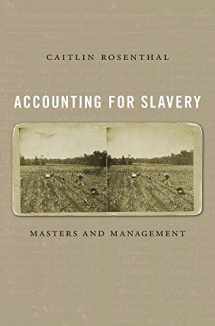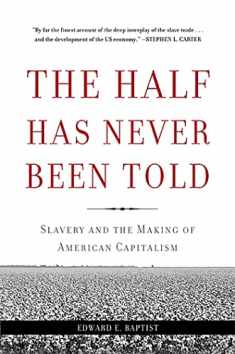
Accounting for Slavery: Masters and Management
Book details
Summary
Description
“Slavery in the United States was a business. A morally reprehensible―and very profitable business…Rosenthal argues that slaveholders in the American South and Caribbean were using advanced management and accounting techniques long before their northern counterparts. Techniques that are still used by businesses today.”
―Marketplace
A Politico Great Weekend Read
Accounting for Slavery is a unique contribution to the decades-long effort to understand New World slavery’s complex relationship with capitalism. Through careful analysis of plantation records, Caitlin Rosenthal explores the development of quantitative management practices on West Indian and Southern plantations. She shows how planter-capitalists built sophisticated organizational structures and even practiced an early form of scientific management. They subjected enslaved people to experiments, such as allocating and reallocating labor from crop to crop, planning meals and lodging, and carefully recording daily productivity. The incentive strategies they crafted offered rewards but also threatened brutal punishment.
The traditional story of modern management focuses on the factories of England and New England, but Rosenthal demonstrates that investors in West Indian and Southern plantations used complex accounting practices, sometimes before their Northern counterparts. For example, some planters depreciated their human capital decades before the practice was a widely used accounting technique. Contrary to narratives that depict slavery as a barrier to innovation, Accounting for Slavery explains how elite planters turned their power over enslaved people into a productivity advantage. The brutality of slavery was readily compatible with the development of new quantitative techniques for workforce organization.
By showing the many ways that business innovation can be a byproduct of bondage, Rosenthal further erodes the false boundary between capitalism and slavery and illuminates deep parallels between the outlooks of eighteenth- and nineteenth-century slaveholders and the ethical dilemmas facing twenty-first-century businesses.
Reader reviews


We would LOVE it if you could help us and other readers by reviewing the book
1 - 1 of 1 reviews
This is an excellent word that very thoughtfully pulls together the diverse manpower requirements for profitably operating large sugar plantations and refineries in the Caribbean exploiting slave labor. The author’s background in forensic accounting gives her a rare insight for interpreting the “books” and presenting the information artfully.
I learned a great deal from this book. Part of her skill is in presenting the facts as they are, as a historical work should be.
The details are truly remarkable.
Book review





